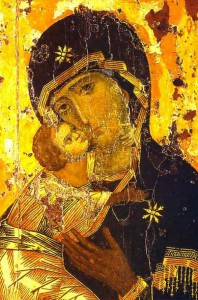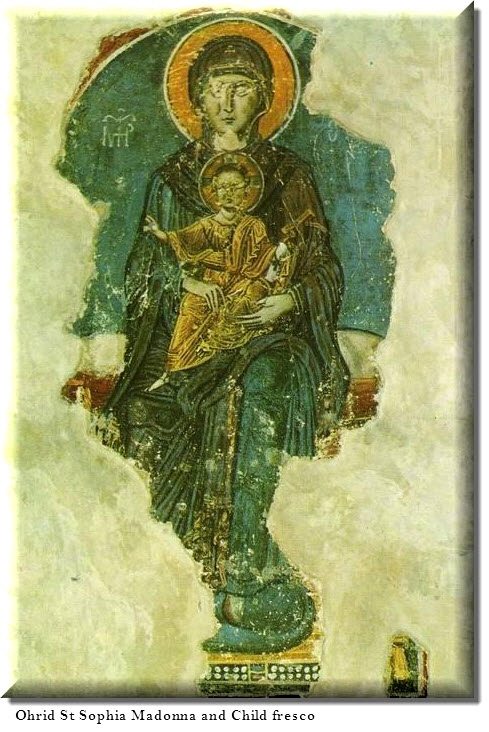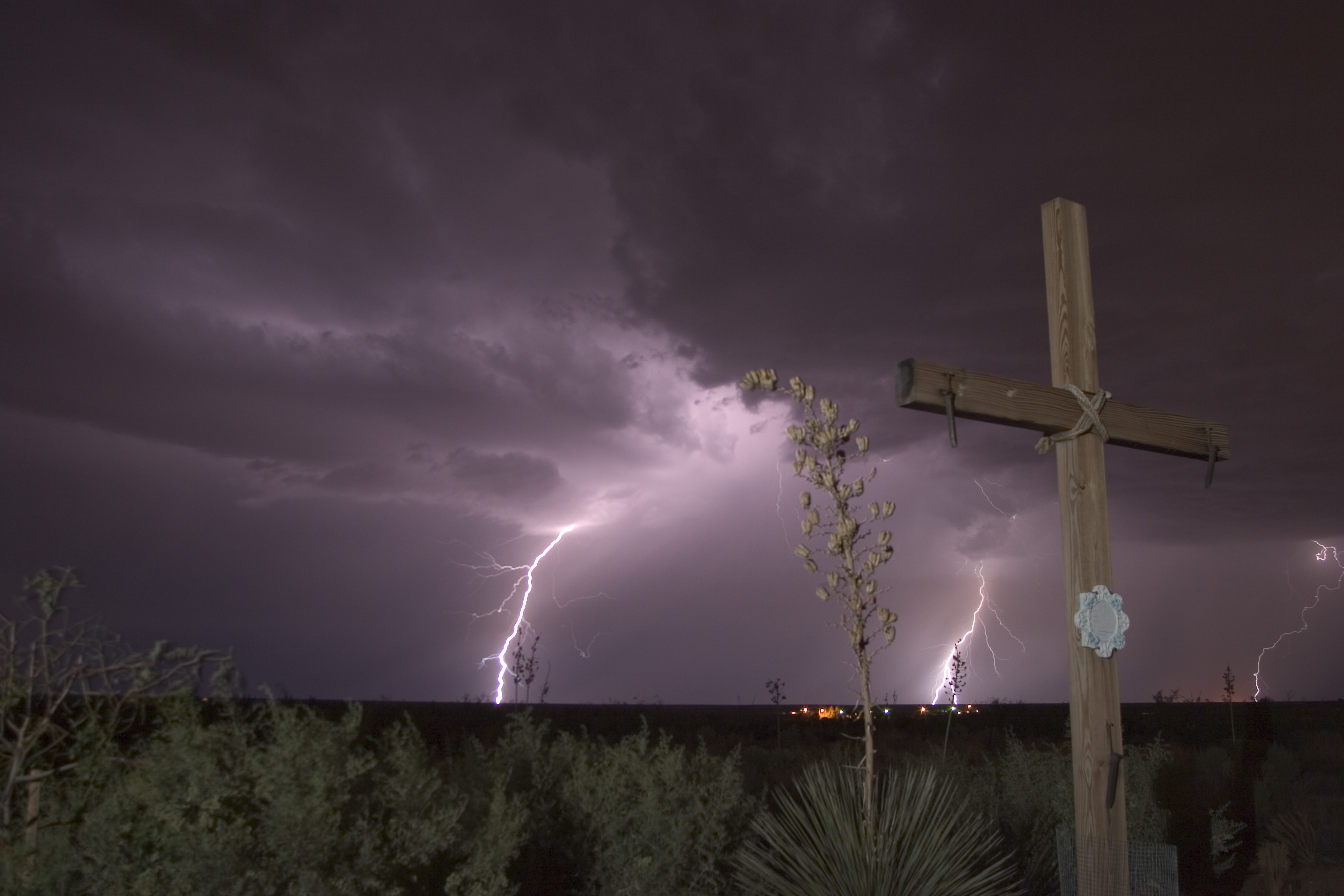by David Morrison
“…His mother kept all these things in her heart. And Jesus increased in wisdom and stature, and in favor with God and men”
-Luke 2:51b-52
Mary’s life, though briefly narrated in the Gospels, is filled with profound and prophetic meanings. Among these is her life as a contemplative: one who is bent on pondering the heart of God and gazing upon Him and simultaneously engaging the realities of our world. From the beginning, when the Angel appeared to her, Mary “considered what kind of message this could be.” Later, at the birth of her son, she “pondered in her heart all that was said about Jesus.” When she and her husband, Joseph, took the eight-day-old Jesus to the temple to be circumcised, and Simeon and Anna spoke the amazing prophecies over him, they “marveled” in this same spirit of contemplative worship. Years later, this heart of childlike wonder had not worn off as we find Mary again “considering all these things in her heart” when she and Joseph found their twelve-year-old son in the temple with the teachers.
When a mother cradles her newborn, all she can do is gaze upon the face: studying it, framing it in absolute affection, breathing in every detail. When Mary gazed upon the infant face of Jesus, she was pondering the very face of God: waiting for that sacred moment when his eyes would open for the first time on earth. Her very natural action as a mother teaches us the way of intimate communion with God. When Mary communed with her newborn child, she saw the Creator of all things in creation itself. With regenerated hearts by the work of the Holy Spirit, we too, have the grace to see the Creator, the Word, in the entire created realm. With this daily renewed vision, we are properly equipped to engage the world. In observing the icon of the Virgin of Vladimir (shown above), Henri Nouwen profoundly noticed that:
Her eyes look inward and outward at once. They look inward to the heart of God and outward to the heart of the world, thus revealing the unfathomable unity between the Creator and the creation. They see the eternal in the temporal, the lasting in the passing, the divine in the human. Her eyes gaze upon the infinite spaces of the heart where joy and sorrow are no longer contrasting emotions, but are transcended in spiritual unity (from Behold the Beauty of the Lord: Praying with Icons by Henri J.M. Nouwen).
Interesting enough, the New Testament Greek word for “ponder” is “sumballō,” which bears a contrast in meanings. “Sum” is rooted in a “combining” or a bringing together, while “ballō” refers to a “casting out.” Essentially, our life of prayer is an inward gaze upon the heart of God (taking in all of his beauty into our souls), and looking through this lens outwardly upon our world, and broadcasting this light upon it through our perspective. Prayer is a breathing in of the presence of God (combining God’s attributes within us), and then breathing this outward upon our world through responsive acts of obedience. This spirit of pondering allows us also to combine all the wonders of God’s truth into our hearts and to cast out the illusions to which the world constantly tries to draw us into with its offerings of grandiose, but shallow claims and tinny promises.
The conventional wisdom of popular Christianity would tell us that the reason the four Gospels don’t elaborate on the rest of Jesus’ life from age twelve to thirty is that it isn’t “pertinent” to his “mission” of salvation. I think the absence of a record is more of an invitation into the mystery of Jesus’ hidden life. The pondering heart is sustained by a wonderment and continually renewed amazement at God’s presence in the world. The short-sighted vision of “facts only” tends to restrict God’s saving plan to the single event of the crucifixion alone. I think Jesus is our salvation in the totality of his life on earth: His birth, his hidden life, his ministry, his suffering, death, and burial. His saving and sanctifying grace is perpetuated by his risen life in the reality of his ascension to the Father. I think the very act of God becoming human and “being subject to his parents” is his first action of redeeming our humanity. I used to pray, “Lord, forgive me for my wretched humanity.” Now, in the light of his perfect humanity and divinity, I pray, “Lord, make me truly human.” So Jesus’ “lost years” are just as important as the events recorded in the Gospels. When I struggle with the sting of obscurity and I feel marginalized and forgotten, I am invited to take up a pondering heart and enter into the Lord’s hidden life. At once, the lonely place of my heart is filled with the company of Jesus, Mary, and Joseph living as a family in their own anonymity and seeming insignificance; and then my heart is filled with hope and communal joy.
There seems to be a threefold connection between Jesus “becoming subject to his parents,” Mary “considering these things in her heart,” and Jesus “growing in favor with God and man.” Perhaps Mary’s “pondering” enabled the boy Jesus to be subject to her and his spirit of humility caused him to “increase in wisdom before God and man.” We nurture the pondering heart within ourselves by listening and respecting the contemplations of others: especially our family members and those with whom we live in a community. As this mutual humility is engaged, our contemplative lives spill outward and become a real service to those around us; and we experience the joy of sharing the increase of wisdom and favor before God and all of creation.
____________________
Prayer:
Lord, sustain in me a pondering heart like mother Mary’s:
In humility and blessed ordinariness.
Keep me in a spirit of childlike amazement
and teach me to gaze inwardly into your eyes,
that I may see through those eyes the world in which I live.
Amen.
______________









What bugs me is that even when we say this we still haven’t said it. Strangely though I feel it takes a mystical awareness to de- mystify this and enter it into our human lives. It seems like until that happens this stays in the sky as a belief, and fails to come home as our life story. If that makes any sense???
Yeah, it seems like the more integrated one is, the less aware of categories, divisions, and dualisms they are.
[…] Holy Family: The Pondering Heart […]